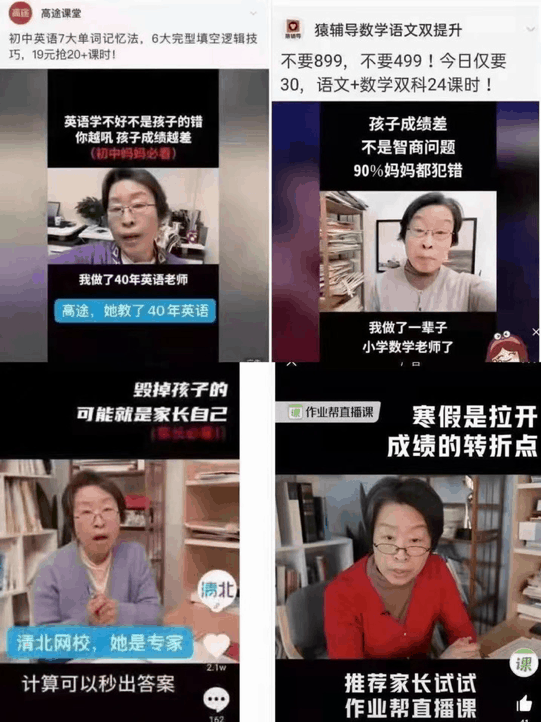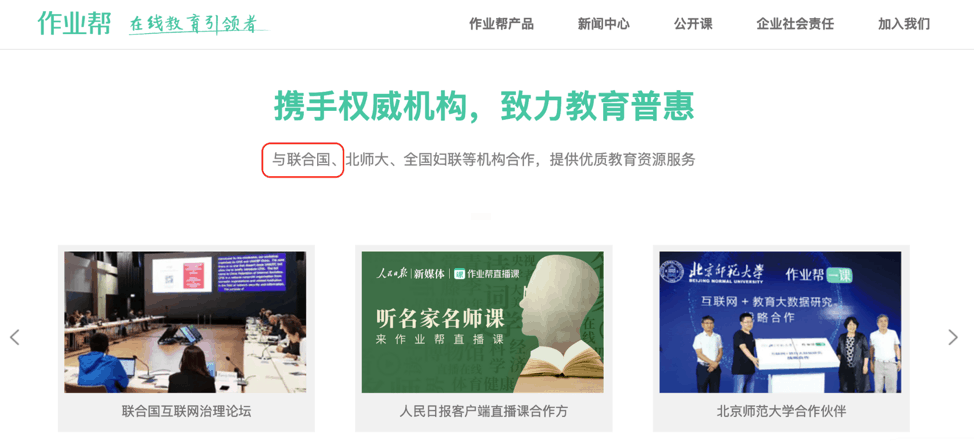Six Examples of Deceptive Marketing from Education Companies in China
19 educational organizations were fined for more than US$6 million due to falsified promotions and deceptive prices. We have looked into 6 of them.

After a series of fines for deceptive marketing, the off-campus education market in China responded with stock price collapse, layoffs, and stopped IPO/fundraising plans.
According to notices released by the State Administration for Market Regulation (SAMR), 19 educational organizations were fined for more than US$6 million due to falsified promotions and deceptive prices, based on Price Law of the People’s Republic of China and Anti Unfair Competition Law of the People’s Republic of China.
Bloomberg news examined why China is cracking down on education companies. In this article, Class Central will focus on six different examples of misleading advertising or marketing that resulted in these fines.
Large amounts of investment are being poured into education companies in China – US$10 billion just in 2020. This has resulted in significant advertising and marketing expenses. Bytedance’s advertising revenue from education companies reached US$2.35 billion in 2020.
![Investment in education companies in China, 2020 [Source: IT Juzi] Investment in education companies in China, 2020 [Source: IT Juzi]](https://www.classcentral.com/report/wp-content/uploads/2021/06/sixexamples2.png)
| Company | Current Series | Funds raised in 2020 (US$) |
| Yuanfudao | Series G | 3.5 billion |
| Zuoyebang | Series E | 2.35 billion |
| Huohua Siwei | Series E | 0.43 billion |
| ClassIn | Series C | 0.265 billion |
| Meishubao | Series D | 0.25 billion |
The Invasion of Advertising

Marketing of online education companies can be found everywhere from national TV programs like the 2021 Spring Festival Gala to bus shelters and metro stations, from social media platforms like Doiyin (TikTok China) to office buildings and elevators.
More than 30 hottest entertainment shows have been sponsored by online education companies and it’s hard to avoid embarrassing embedded advertisements while enjoying your favourite shows. In April 2020, Zuoyebang and Youdao announced strategic cooperations with the Chinese women ’s national volleyball team. And in July 2020, Yuanfudao was announced as the Official E-learning Services Sponsor of the Olympic and Paralympic Winter Games Beijing 2022.
Marketing Expenses Soar
| Company | First Quarter 2021 (million US$) | First Quarter 2020 (million US$) | Increase Rate |
| GSX Techedu Inc. (GOTU) | 449.5 | 144.4 | 211% |
| Youdao, Inc. (DAO) | 166.1 | 64.4 | 164.3% |
| TAL Education Group (TAL)(#) | 1662.0 | 899.3 | 85% |
| New Oriental Education & Technology Group Inc. (EDU) (*) | 1089.0 | 788.2 | 38% |
| Meishubao | 68.1 | 49.3 | 42% |
Operating costs and expenses of public education companies from their financial report.
* Third Fiscal Quarter 2021 vs Third Fiscal Quarter 2020
# Fourth Fiscal Quarter 2021 vs Fourth Fiscal Quarter 2020
A report from LatePost shows that in a day of June 2020, US$4.7 million advertising budget was spent on ByteDance Advertising platform by Yuanfudao. In 2020, the advertising budget from top K12 education companies had reached US$940 million in 2020.
Six Examples of Deceptive Marketing
Example 1: Falsifying teachers’ work experience

In January, four online education companies Gaotu Group, Yuanfudao, Qingbei Wangxiao, and Zuoyebang hired the same actress to promote their courses in short streaming videos. In the video from Gaotu, the “teacher” claimed that she had 40 years of English teaching experience while in the video from Yuanfudao, she was a primary school math teacher for her whole life. The “expert” is also an actress of many funny videos on Bilibili, Weibo and Douyin (TikTok China).
Example 2: Advertising deceptive discounts
Advertising deceptive discounts were found among all of these fined education companies listed by the State Administration for Market Regulation (SAMR). For example, a subsidiary of TAL Education (NYSE: TAL) Xueersi (Beijing) was fined RMB 500,000 (US$77,000) for promoting an online course at RMB 20 (US$3) with a strikethrough “original” price RMB 799 (US$123). “The course has no transaction at the strikethrough price before the promotion”, the notice said.
Example 3: Falsely claiming partnership with the United Nations

Zuoyebang falsely claimed a partnership with the United Nations on its website, which has been removed from its newly official website. Zuoyebang also falsified teachers’ education or work experience and advertised deceptive discounts according to the notice. In May 2021, Zuoyebang posted the following statement on its official Weibo (Twitter China) account.

Example 4: Exaggerating teachers’ education background or teaching age
A Zhejiang-based subsidiary of New Oriental Education & Technology Group (NYSE:EDU) was penalised for exaggerating teaching ages. “76 of 103 teachers, supervised by the market regulation department, are promoted with longer teaching ages based on the date they obtain Teacher Qualification Certificates”, indicated by the notice. Similar exaggerating descriptions like “100% teachers with overseas degrees”, “100% foreign native speakers”, “ranking top 5% of national professional exams”, etc.
Example 5: Falsified/Exaggerating students’ learning progress
Zhuoyue, a local K12 education company in Guangzhou, was fined RMB 2.5 million (US$391,911) for “publishing a number of promotion reports on its social media account, using students’ personal photos and fabricating their learning effects without students’ authorization”, according to a notice (in Chinese) from the State Administration for Market Regulation (SAMR). Similar promotion descriptions like “100% of promotion rate in secondary school”, “99.78% of the students get certificated by SW” were reported by the notice.
Example 6: Falsely claimed “4 of your friends have purchased”
Yuanfudao, one of the biggest Chinese online tutoring companies backed by Tencent, has aggressively raised US$3.5 billion in 2020 after the pandemic. The company was fined 2.5 million RMB (US$391,911) for promoting online courses with the false claim “4 of your friends have purchased”, “one-on-one tutoring”, etc.






